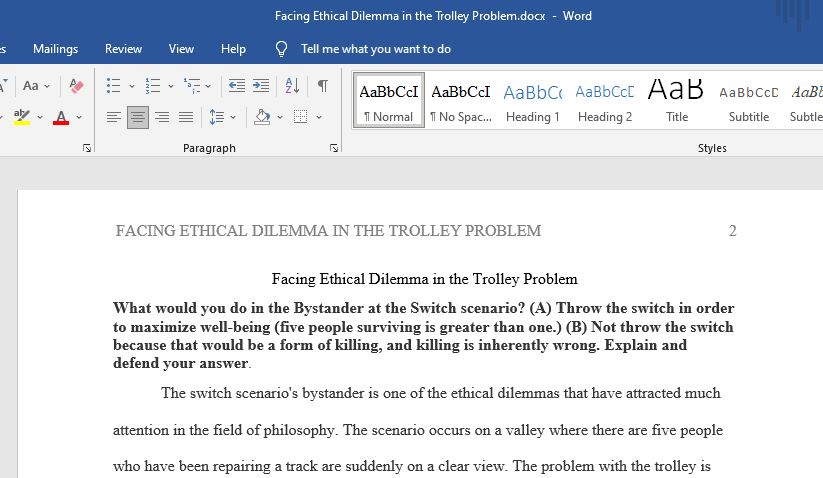Facing Ethical Dilemma in the Trolley Problem
Policies and Definitions.
(1) Factual ignorance can work as a moral excuse: if Susie spoons cyanide into Jane’s coffee, but thinks she is spooning sugar, then Susie may be blameless for poisoning Jane. When exactly does factual ignorance works as a moral excuse? Can moral ignorance also work as an excuse? If one does not believe that one’s action is wrong, and one has not mismanaged one’s beliefs, is one then blameless for acting wrongly? Explain your answer.
(2) Kevin Kelly (founder of Wired magazine) claims that no technology is ever completely out of bounds. Having a new technology is always an unalloyed good. It is always better to have a new technology at our disposal and simply seek to manage it properly. Do you agree with Kevin Kelly? Explain your answer.
(3) What would you do in the Bystander at the Switch scenario? (A) Throw the switch in order to maximize well-being (five people surviving is greater than one.) (B) Not throw the switch because that would be a form of killing, and killing is inherently wrong. Explain and defend your answer.
(4) Consider the extended mind thesis. What ethical conclusion might derive from interpreting Otto’s notebook as an extension of his mind? Do you think evolution evolved brain explicitly to outsource cognitive function to reduce the workload? Explain your answers.
Requirements: 1200-1800
Answer preview:

word limit:1280
